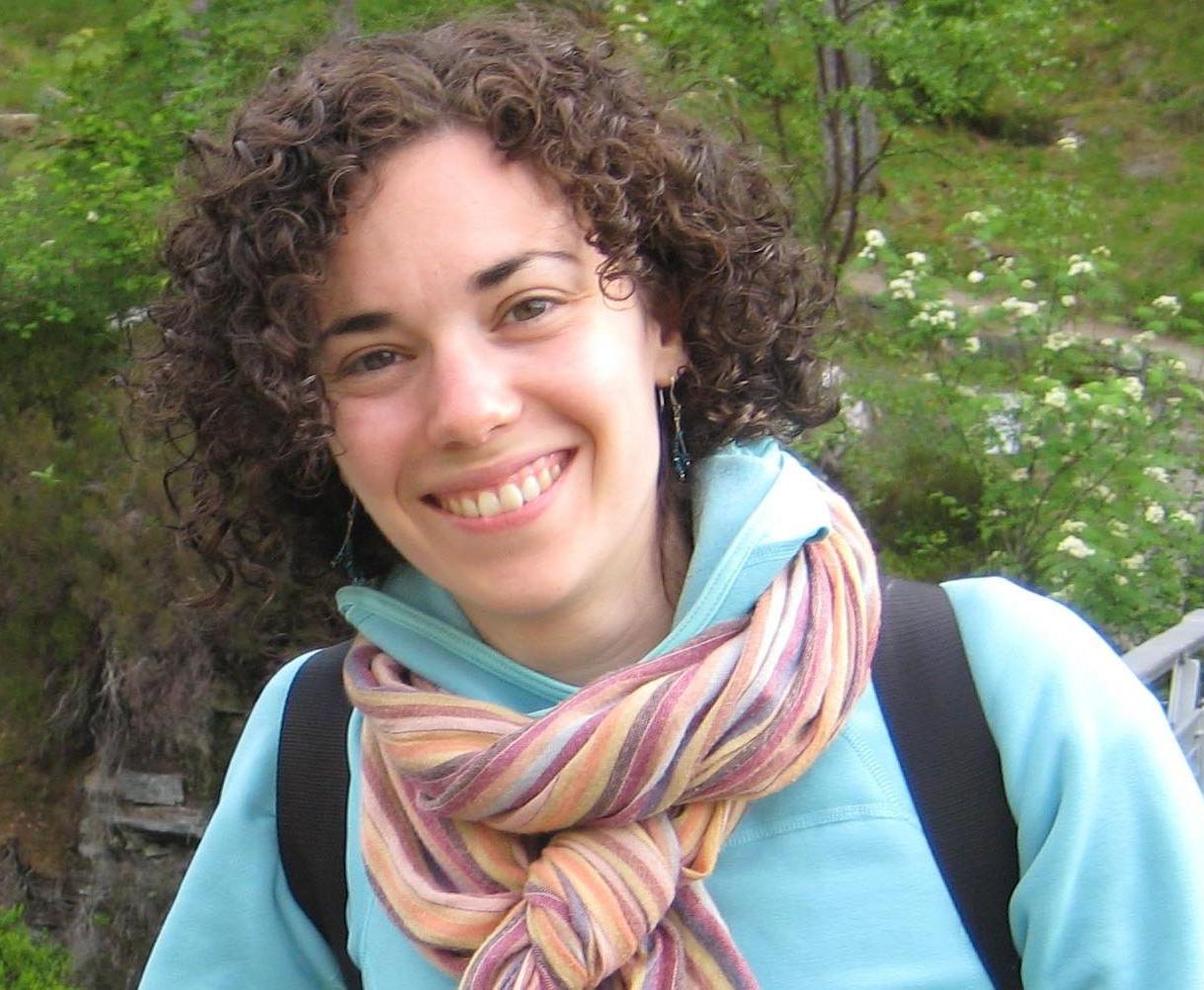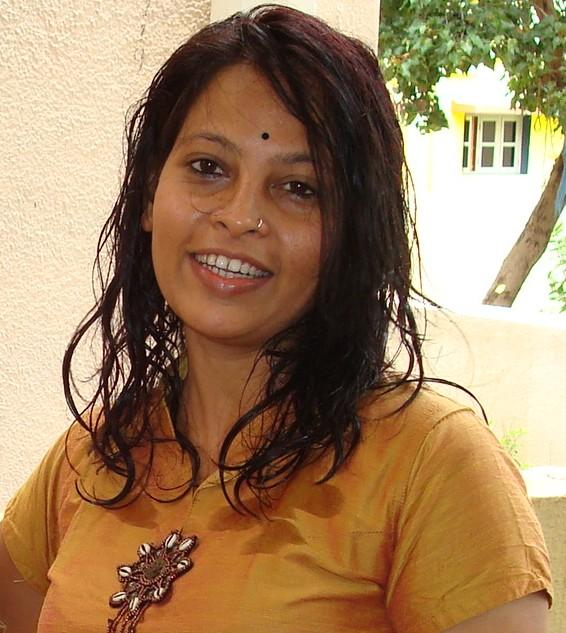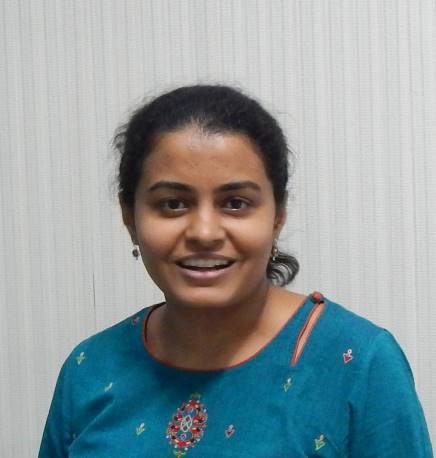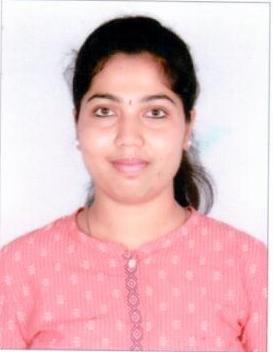|
|
|
|

|

|
|
 |
|
Judie Alimonti |
| Home
Country: |
Canada |
| Degree: |
BSc
Microbiology
PhD Immunology |
Supervisor:
Project Title: |
Dr.
Keith R. Fowke
Associate Professor,
Medical Microbilogy, University of Manitoba
HIV Specific CD4 Immune Responses |
|
|
Description
of the Project: Approximately 5-10% of the women in the Pumwami (Nairobi, Kenya) commercial sex worker cohort have been identified as HIV resistant despite having up to 500 unprotected sexual exposures to HIV-infected clients. The cell mediated immune response plays a strong role in HIV resistance, and it is the CD4+ T helper (Th) cells that regulate this response. The Th cell contributes to viral clearance by governing the induction and magnitude of the CTL and humoral immune responses, as well as produce chemokines that inhibit HIV infection. Since Th cells have a role in viral resistance we examined the Th immune response in infected versus naturally resistant women enrolled in the Pumwami cohort in Nairobi. We hypothesize that the HIV specific Th responses in resistant individuals are qualitatively and quantitatively different from HIV infected individuals. |
 |
|
Zhujun Ao |
| Home
Country: |
China |
| Degree: |
PH.D. 2001-2007, University of Montreal, Microbiology and Immunology
M.Sc. 1988-1991, Histology and Embryology, Tonji University of Medicine, Wuhan, China
M.D. 1980-1985, Zunyi University of Medicine, Zunyi, China |
Supervisor:
Project Title: |
Dr. Xiaojian Yao
Investigation of mechanism underlying anti-HIV action of R88-A3G: Development of a potent anti-HIV approach in primary CD4+ T cells and macrophages |
|
|
Description
of the Project: APOBEC3G (A3G), a deoxycytidine deaminase, is a powerful host antiviral factor that can restrict HIV-1 infection. However, during the wild-type HIV-1 infection, the antiviral effects of A3G are counteracted by the presence of viral protein Vif. Recently, we have demonstrated that A3G could overcome HIV-1 Vif’s barrier and incorporate into virus through an alterative pathway, Vpr1-88-A3G (R-A3G) fusion protein, and significantly restrict Vif+ HIV infection. In this study, we will further characterize and optimize the R88-A3G fusion proteins and investigate their anti-HIV activities in human primary peripheral blood monocytes (PBMCs) and macrophages. |
 |
|
Genevieve Boily-Larouche |
| Home
Country: |
Canada |
| Degree: |
U of Manitoba, post-doctoral fellow
PhD in Virology and Immunology from the University of Montreal
BSc in Biomedical Sciences from the University of Montreal |
Supervisor:
Project Title: |
Dr. Keith Fowke
Longitudinal analysis of immune quiescence and the impact of sex work in HIV Exposed Seronegative (HESN) sex workers from Nairobi, Kenya |
|
|
Description
of the Project: The Pumwani Sex Worker Cohort from Nairobi, Kenya, contains a small sub-group of women who are intensively exposed to HIV-1 yet remain uninfected. Previous studies from HIV resistant commercial sex workers have provided strong evidence of an immunologically quiescent phenotype among these women. Multiple factors may drive immune quiescence in HIV Exposed Seronegative (HESN) sex workers and contribute to their reduced susceptibility to HIV infection. Sex work results in exposure to very strong immune stimulants and affects the level of immune activation. This project will study the impact of sex work on peripheral and mucosal immunological factors in a longitudinal analysis of mucosal immune quiescence. |
 |
|
Joyee Antony George |
| Home
Country: |
India |
| Degree: |
MSc.
Microbiology, M.S. University, India
Ph.D. Microbilogy, University of Madras, India |
Supervisor:
Project Title: |
Dr. Xi Yang
Immune responses in chlamydial infection |
|
|
Description
of the Project: The study will focus on investigating the immune responses in chlamydial infection. The role of cytokines and T-cell mediated responses will be studied. The elucidation of mechanisms of protective and pathological responses to chlamydial infection would provide a clearer understanding of the immunological basis of chlamydial infection, which would ultimately help in designing effective vaccine candidates for Chlamydia. |
| |
 |
| Kaveri Gurav |
| Home
Country: |
India
|
| Degree: |
PhD: Anthropology, Karnatak university, Dharwad, India
MSc: Anthropology, (Physical anthropology), Karnatak university, Dharwad, India
PG Diploma: women studies , Karnatak university, Dharwad, India |
Supervisor:
Project Title:
|
Dr. James Blanchard
Vulnerabilities associated with migration of female sex workers (FSWs) in India
|
|
|
|
Description
of the Project: The project will take place in
rural Karnataka, India. The study will seek
to answer the following question: Are underlying
factors,
such as caste structure, migration, levels of poverty,
social capital, types of employment, relations among different
religions, etc., impacting more proximate factors (e.g.,
risk behaviour, sex work, sexually transmitted infections,
etc.) and ultimately impacting HIV/AIDS rates? The study
will first develop and pre-test village-level data collection
tools. It will then conduct a data collection process from
a sample frame of 7500 villages. The data will be analyzed
for reliability and validity purposes. Further analyses
will test hypotheses of community level risk factors for
HIV/AIDS.
|
| |
 |
| Shamshad Khan |
| Home
Country: |
India
|
| Degree: |
PhD in Communication (Simon Fraser University, Canada);
PDF, Centre for Global Public Health, University of Manitoba
MPhil in Social Sciences in Health (Jawaharlal Nehru University, New Delhi, India)
MA in History (Jawaharlal Nehru University, New Delhi, India) |
Supervisor:
Project Title:
|
Dr. Robert Lorway
Community-based Ownership and Uptake of Future HIV Vaccine Programs among MSM and FSWs in India
|
|
|
|
Description
of the Project: This study aims to explore the acceptability and community-based ownership of future HIV vaccine programs among MSM and FSWs in India. While the recently reported “moderate efficacy” of an HIV vaccine trial in Thailand has raised hope that an efficacious preventive vaccine will be released in the not too distant future, it cannot be assumed that the availability of such a vaccine will ensure a population’s uptake. Using ethnographic research design, this study particularly explores the following question: given the intense stigma and discrimination that inhibit MSM/FSWs from accessing health services and prevention technologies in India, how will these barriers affect their ability to access, accept and demand a culturally sensitive and ethical community-based HIV vaccination program? Findings from this research will help in developing a community-based vaccination preparedness plan and advocacy strategy in resource-poor settings, both in India as well as other countries, including Canada.
|
| |
 |
| Aditi Krishnamurthy |
| Home
Country: |
Bangalore, India
|
| Degree: |
International Post Doctoral Fellow
MBBS - Kempegowda Institute of Medical Sciences, Bangalore, India
MD, Community Medicine - St. Johns Medical College, Bangalore, Rajiv Gandhi University of Health Sciences, Bangalore
DNB, Social and Preventive Medicine - National Board of Examination, New Delhi |
Supervisor:
Project Title:
|
Dr George A D’Souza
Assessment of Effectiveness of telephone based counselling and follow up for better outcomes in patients with TB and their families in the private and public sectors in selected districts of Karnataka, India
|
|
|
|
Description
of the Project: India alone accounts for 26% (2.3 million) of the global TB burden. Delayed or inappropriate TB management contributes to increased losses and risk of drug resistance in India. Significant number of patients are receiving TB treatment or treatment for their TB symptoms in the private sector. Many patients with tuberculosis, those on private treatment as well as beneficiaries of DOTS, receive inadequate or inappropriate treatment support resulting in treatment non-compliance, sub-optimal treatment outcomes, cause spread of infection and increased risk of drug resistance. Even the program noted the need for counselling and reports expressed the paucity of trained, skilled counsellors for the specific need. KHPT offered TB Careline services, a telephonic facility during USAID funded SHOPS-TB Project in Karnataka. A significant number of TB patients were registered and received support services. The service was continued despite closure of the SHOPS TB Project in December 2014. Private providers expressed the need for treatment support services to their TB patients and strongly recommended continuation of the TB Careline service. The objective of the research is to assess the effectiveness of a telephonic support services to patients with TB for favourable treatment outcomes in selected districts in Karnataka state in India. The research study is conceptualized as a multi-arm Interventional study amongst patients with confirmed diagnosis of TB in the public or private health care system presumed to have drug sensitive TB. This systematic evaluation of the effectiveness of a telephonic intervention for TB care and support will help provide evidence for scale up and adoption.
|
| |
 |
| Krishnamurthy Jayanna |
| Home
Country: |
India
|
| Degree: |
M.D. Community Medicine, Rajiv Gandhi University of Health Sciences, Bangalore, India
M.B.B.S, Mysore University, Mysore, India |
Supervisor:
Project Title:
|
Dr. Stephen Moses
Developing tools and methods to improve and measure quality of maternal newborn and child health service in developing country settings
|
|
|
|
Description
of the Project: In most developing countries including India, there is a significant rise in institutional births yet this is not resulting in desired reductions in maternal and child mortality rates. This is largely due to poor quality of care in these facilities due to gaps in both the provider competencies and facility system readiness. The proposed postdoctoral work will contribute to the development of newer tools, methods and interventions to improve and measure quality of maternal and newborn care in public facilities at primary and first referral care units of Karnataka. The research work will aim at studying effectiveness of innovations within the existing health systems with due considerations of scalability and cost effectiveness of interventions. The research work has potential to inform public health programs and policies in relation to quality improvement efforts in maternal, newborn and child health.
|
| |
 |
| Sushma Jayarama |
| Home
Country: |
Bangalore, India
|
| Degree: |
Doctor of Medicine (MD), Community Medicine, Rajiv Gandhi University of Health Sciences, Mysore Medical College and Research Institute, Mysore, Karnataka, India (2015-2018)
MBBS (Bachelor of Medicine and Bachelor of Surgery), Rajiv Gandhi University of Health Sciences, Kempegowda Institute of Medical Sciences, Bangalore, Karnataka, India (2008-2013) |
Supervisor:
Project Title:
|
Dr Karthikeyan K and Dr Swaroop N
Assess the feasibility and effectiveness of TB and Diabetes convergence at health care system in the peripheral health facilities in high burden districts of Karnataka, India.
|
|
|
|
Description
of the Project: Early detection and prompt management of TB among diabetics and diabetes among TB patients are crucial to reduce the dual burden of TB and Diabetes. From the experience in field, it was noted that the existing Joint TB-Diabetes collaborative framework is not being effectively implemented. The proposed study tries to explore opportunities to understand and recommend how better this convergence can be stregthened. Learnings from the study would provide a structure of strategies within the health care system to improve treatment outcomes in TB and Diabetes. Thus, the study will be undertaken in high burden districts of Karnataka, India.
|
| |
 |
| Julie Lajoie |
| Home
Country: |
Canada
|
| Degree: |
Post-Doctoral fellow ; University of Manitoba
PhD: University of Montreal
BSc. : University of Montreal
MSc: University of Montreal |
Supervisor:
Project Title:
|
Dr. Keith Fowkebr>
Mucosal immune activation in commercial sex workers
|
|
|
|
Description
of the Project:I am analysing the expression of some proteins in the CVL of commercial sex workers where I will try to define which cells are expressing those proteins in the mucosal tissue. In another project, I am sequencing the CD4 locus gene. |
| |
 |
| Lyle McKinnon |
| Home
Country: |
Canada
|
| Degree: |
PhD in Medical Microbiology-U. of Manitoba
Postdoctoral fellow, University of Nairobi/ Toronto
BSc in Biology-U. of Winnipeg |
Supervisor:
Project Title:
|
Drs. Joshua Kimani, Rupert Kaul
Effect of antiretroviral therapy on mucosal immunology in female sex worker cohorts
|
|
|
|
Description
of the Project: The aim of this study is to determine how antiretroviral therapy affects the mucosal immunology of the female genital tract in high-risk, core transmitter groups in Nairobi, Kenya. This is a longitudinal study that assesses changes in cell populations in the cervix, cytokine milieu, and the effects of genital tract co-infections on shedding of HIV. In addition we will determine the impact of ART on sexual risk taking behaviour and drug resistance patterns. This study has important public health implications for the ability of ART to decrease the odds of HIV transmission from an important core transmitter group.
|
| |
 |
| Javier
Mignone |
| Home
Country: |
Argentina
|
| Degree: |
MSc
Health Services Administration, University
of Albert |
Supervisor:
Project Title:
|
Dr. Stephen Moses
Community level risk factors of HIV/AIDS in rural India
|
|
|
|
Description
of the Project: The project will take place in
rural Karnataka, India. The study will seek
to answer the following question: Are underlying
factors,
such as caste structure, migration, levels of poverty,
social capital, types of employment, relations among different
religions, etc., impacting more proximate factors (e.g.,
risk behaviour, sex work, sexually transmitted infections,
etc.) and ultimately impacting HIV/AIDS rates? The study
will first develop and pre-test village-level data collection
tools. It will then conduct a data collection process from
a sample frame of 7500 villages. The data will be analyzed
for reliability and validity purposes. Further analyses
will test hypotheses of community level risk factors for
HIV/AIDS.
|
| |
 |
| Dr K Pushpanjali |
| Home
Country: |
Sira Taluk, Tumkur District, Karnataka, India
|
| Degree: |
Ramaiah University of Applied Sciences, Post-Doctoral Fellow
PhD from M S Ramaiah medical College and Hospital, Rajiv Gandhi University of Health Sciences
Master of Dental Surgery from Government Dental College, Bangalore University
Bachelor of Dental Surgery from VS dental College and Hospital, Bangalore
|
Supervisor:
Project Title:
|
Dr. Krishnamurthy Jayanna
Establishing a Centre of Excellence for Oral Health
Promotion and Oral Cancer prevention
|
|
|
|
Description
of the Project: Oral cancer is a major public health problem in India, being ranked among the top three cancers. Although oral cancer has one of the lowest five year survival rates of all cancers, when detected early, the probability of survival is higher than most cancers. Studies suggest that the disease can be prevented, and the associated morbidity and mortality can be reduced through appropriate oral health promotional interventions. These interventions should target the access to early detection and enhancement of knowledge related to and promotion of positive behaviors associated with the disease. Hence, we propose the development of a center for excellence which works towards oral cancer prevention through oral health promotion in diverse communities, by facilitating their transformation into healthy settings. Such a transformation will be enabled through the appropriate delivery of planned, structured and contextually adapted community based oral health literacy programmes.
|
| |
 |
| Swaroop N |
| Home
Country: |
Bangalore, India
|
| Degree: |
International Post Doctoral Fellow, Bangalore, India
MD, St. John’s Medical College, Bangalore, Karnataka
MBBS, Bangalore Medical College and Research Institute, Bangalore, Karnataka |
Supervisor:
Project Title:
|
Dr Krishnamurthy Jayanna
Dimensions and determinants of Quality of Life (QoL)
|
|
|
|
Description
of the Project: Health-related quality of life (HRQoL) is an assessment of how the individual's well-being may be affected over time by a disease, disability, or disorder. It is multidimensional and covers physical, social, emotional, cognitive, work related, spiritual as well as a wide variety of disease related symptoms, therapy induced side effects and financial impact of medical conditions. There are wide range of tools and metrics available for assessment of QoL in various settings. I am particularly interested in exploring dimensions of QoL in two different settings in India. One is in the context of a rural northern Karnataka that lags behind the rest of the state in many of the maternal and child health indicators. Here, my study will follow up on a cohort of low birth weight babies for a period of 18 months and assess the impact of health and nutritional interventions on indicators such as morbidity and mortality, anthropometric measurements, developmental milestones including cognitive development of infants. The project will also explore relationships with existing socio-economic, gender and cultural norms thus outlining multidimensional facets of quality of life which need to be taken cognizance of while designing health and development initiatives. The other study is in an urban setting, particularly in the geriatric age group affected with dementia due to Alzheimer’s or other causes. Here the family level correlates of QoL and particularly care givers’ role in intervention programs toward improving memory, cognition, coordination and other aspects of dementia affecting elderly will be explored. The study can add new evidence into existing literature in relation to cognitive stimulation and training as a complement to existing therapies. Through these studies, my postdoctoral research will aim at establishing definitions, determinants, indicators, intervention methods and tools for improving quality of life in different settings.
|
| |
 |
| James Sainsbury |
| Home
Country: |
New Zealand and Canada
|
| Degree: |
PhD (Victoria University of Wellington)
University of Manitoba, Postdoctoral Fellow |
Supervisor:
Project Title:
|
Dr. Frank Plummer
Mucosal immune activation in commercial sex workers
|
|
|
|
Description
of the Project: A genomewide association study identified a novel candidate gene for the HIV-1 resistance phenotype in the Pumwani Sex Worker Cohort. James’ project involves the broad characterization of this gene at the level of genome, the transcriptome and the proteome with the goal of identifying mechanisms of HIV-1 protection.
|
| |
 |
| Tushar Shaw |
| Home
Country: |
Kolkata, West Bengal, India
|
| Degree: |
PhD (Microbiology), Manipal Academy of Higher Education
MSc Medical Microbiology, Manipal Academy of Higher Education |
Supervisor:
Project Title:
|
Dr Krishnamurthy Jayanna/Dr Soma Chaki
Understanding the emergence, burden and transmission of Carbapenem resistance Enterobacteriaceae during the COVID-19 pandemic
|
|
|
|
Description
of the Project: To understand emergence, transmission, and burden of Carbapenem
Resistance Enterobacteriaceae during the COVID-19 pandemic.
|
| |
 |
| Dr. Sandeep Thirunavukkarasu |
| Home
Country: |
Bangalore, India
|
| Degree: |
MBBS – Ramaiah Medical College, Rajiv Gandhi University Of Health Sciences, Karnataka, India
MBA (Hospital Management) – Indian Institute of Pharmaceutical Marketing, India
MD (Microbiology) – Ambedkar Medical College, Rajiv Gandhi University of Health Sciences, Karnataka, India
MMSc (Infectious Diseases) – University of Nicaragua, Guyana
|
Supervisor:
Project Title:
|
Dr. Medha. Y. Rao
Clinical outcome in ICU patients after de-escalation of antibiotics based on selective reporting strategy
|
|
|
|
Description
of the Project: Sepsis, the syndrome of life-threatening organ dysfunction complicating severe infection, requires early active antibiotic therapy is associated with better outcomes. Antimicrobial de-escalation is commonly recommended in the intensive care unit (ICU) patients who are treated with broad-spectrum antibiotics, as a strategy to reduce antimicrobial pressure of empirical broad-spectrum therapy and prevent antimicrobial resistance, yet this has not been convincingly demonstrated in a clinical setting. Selective reporting of antibiotic susceptibility testing (AST) results is a potentially interesting tool for antibiotic stewardship. Evidence shows selective reporting is able to influence antibiotic use, both discouraging prescription in case of colonization, and promoting the selection of narrow-spectrum agents. Aim of the study is to estimate the frequency of de-escalation of antibiotics in ICU based on culture reports with selective reporting strategy & to calculate the reduction in days of hospitalization. Expected outcomes are appropriate prescription of antibiotics for infections, judicious use of antibiotics in the ICU, significant reduction in cost to the patient during the hospital stay & increased cure rate of infections encountered in ICU
|
|

|
© 2009-2023 IID&GHTP. All rights reserved.
Contact IID&GHTP
Contact Webmaster
|

